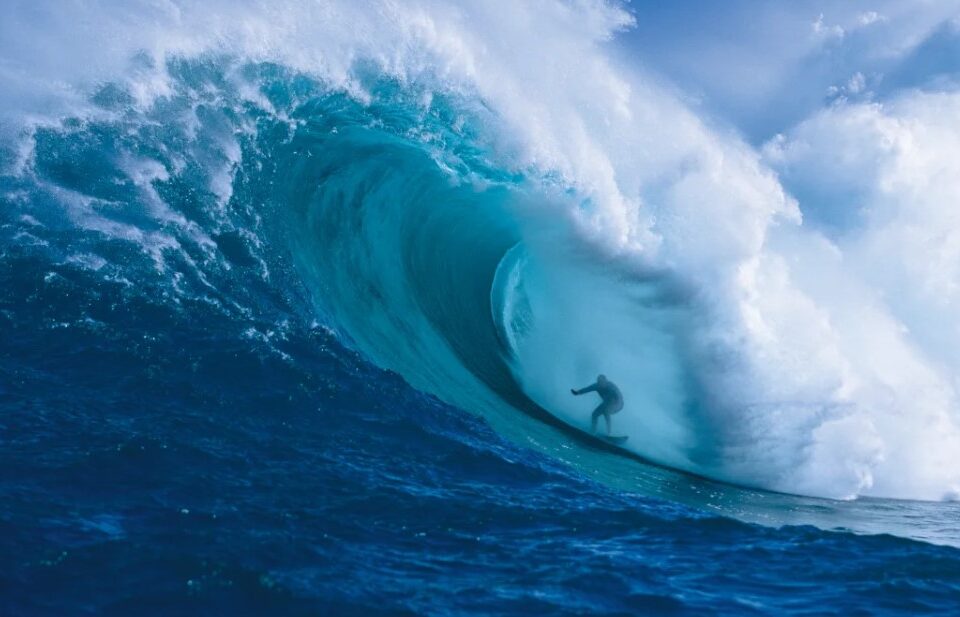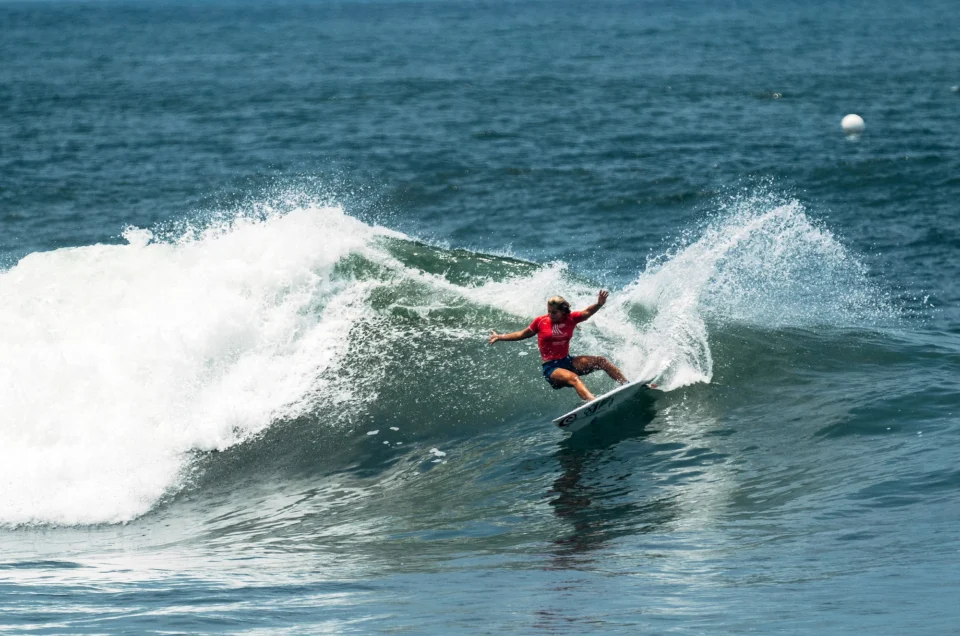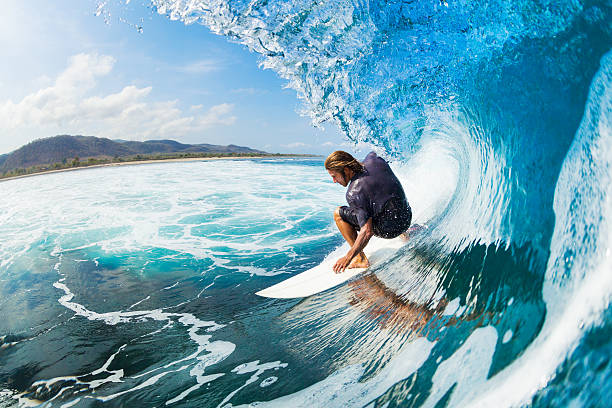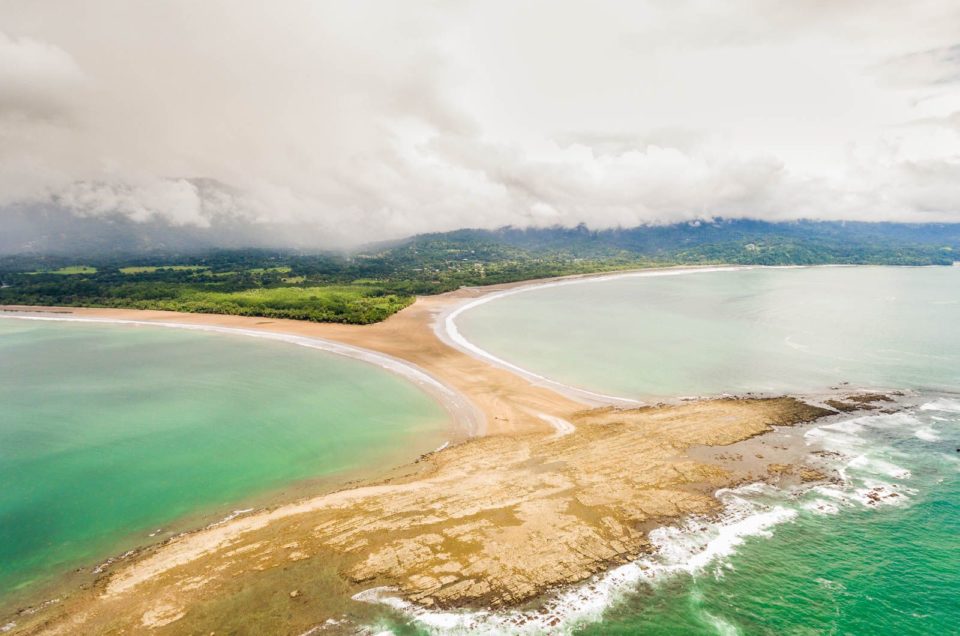In the recent months of April and May, the Pacific Ocean has seen quite the swell all across the globe. Big waves, originating from Australia, have hit Pacific coastal regions with some heavy waves due to storm patterns.
Surfing big waves is not for the faint hearted. But the term “big” can mean different things for different surfers.
For a beginner surfer, “big” could mean 3 foot + waves. For an expert big wave surfer, the bigger the better.
With the rise of XXL Surf Competitions, and the recent fame of breaks such as Nazare, surfers have pushed the world of surfing to the limits.
But for an individual who is struggling with fear, and wants to progress in their surfing by catching more challenging waves, fear can be difficult to overcome.
Although mastering fear of bigger waves is a very personal journey, one that can take an entire lifetime, there are a few ways to overcome fear in surfing.
1. Meditation
Surfing is just as much a mental sport as a physical sport. Although having a strong physical condition (especially strength in paddling to catch waves) is important, the mind must be trained along with the body in order to start surfing bigger waves.
Fear is a natural part of surfing. Do not take having fear as a sign of weakness. As a matter of fact, having fear is a sign that you respect the power of the ocean.
Fear may be hindering your ability to get out into bigger waves, but it can be managed. Fear never completely goes away.
It doesn’t matter if you are a complete beginner, or an expert. Fear will catch up with you at some point, so it’s best to learn how to confront it and move through it, instead of expecting it to go away completely.
Meditation does wonders for surfers. Meditating teaches the mind to focus on the present, on the accomplishable, and ground a person in the moment. Surfing is all about finding the right moments, so this practice can help greatly.
Meditation also has some amazing physical benefits. It can slow the heart rate, relax the muscles, and improve concentration. Meditation can even change the structure of our brains, for the better.
Tension holds you back from surfing in style. If you look rigid while riding a wave, then you might be unaware of the tension you are carrying in your body.
To get rid of this tension through meditation, Try box breathing. This breathwork slows the body down and draws all of your attention, forgetting about what is causing the fear.
Do a 4 second inhale, followed by a 4 second pause. Then, a 4 second exhale, followed by a 4 second pause, and repeat until you feel your heart rate start to slow repeat
Some surfers have small rituals they do, such as touching the water in a specific way, before taking on bigger waves. Find what works for you, and stick with it.
2. Surf in the right conditions
In order to progress in surfing, you should be pushing yourself into bigger waves once you feel ready. But, finding the right conditions are crucial to improving your surf.
A misconception of learning to catch bigger, faster waves is that you need to go out in pumping, huge, and fast conditions.
In reality, it’s important to find the right waves in the right conditions, not just the waves that appear bigger from shore.
In any surfing condition, you need a few things. One of the most important is rolling, peeling waves that won’t close out or break all at once.
Closed out waves won’t let you ride the face of the wave, which makes the impact zone more heavy. Waves that are overhead or double overhead, but are breaking nicely, will be easier to catch, and less intimidating.
In the end, putting yourself in unsafe or scary waves will do nothing except deter you from surfing and give you a bad experience.
Make sure you are competent at reading waves, and knowing the right ocean conditions, before taking your surfing to the next level.
3. Find the right surfboard
Beginner surfers often do best with a longer board. There are several reasons that a longer board can help beginners.
First of all, longer boards have more volume, and make it easier to catch waves. The more waves you are able to catch, the faster your surfing will progress.
But in bigger waves, you’ll need a shorter board. A shortboard will make the drop into a bigger wave more possible. Dropping in on a big wave on a longboard makes the angle more difficult.
Second, if you’re trying to catch bigger waves, you want to make sure that you know the maneuvers that will help you build speed along the face of the wave. Shortboards are the key to being able to successfully complete these maneuvers.
Before heading out into bigger waves, practice with your surfboard on waves you feel very comfortable in. Then, start slowly progressing to a shorter surfboard.
Big wave surfers use a type of surfboard called a gun, which is like a super speed hybrid between a longboard and a shortboard.
Picking out a gun surfboard can be tricky, so it’s best to ask for advice from more experienced surfers when it comes to selecting this type of surfboard.
4. Take your time
The most important piece of advice for overcoming fear and paddling into bigger waves is to take your time, and don’t push yourself to take on bigger waves until you are ready.
Surfing is a sport where you can spend a lifetime improving, and surfers who are always improving are always seeking to challenge themselves.
In this day and age of social media, it’s easy to get lost in comparing yourself to others. It’s hard to see people surfing huge waves with impressive skill, and not feel a bit inferior or intimidated.
Surfing should always be about having fun. If you’re finding yourself uncomfortable or afraid all the time, it’s perfectly fine to take a step back or two.
If you do want to get into bigger waves, and you feel ready, start slowly but surely. Head to different breaks and test out which waves you feel the most confident in, become familiar with the break, and start taking bigger waves gradually.
Surf lessons at any level and experience are super important, especially if you are challenging yourself to overcome fear and be in bigger surf.
5. Find a buddy or a surf coach
Going out with a competent surf instructor, like the ones we have here at Uvita 360, will give you the confidence you need to step up your surf game and get the waves you want.
Having someone with more experience out there with you will improve your surf game dramatically, no matter what your goals are. Someone to talk to out in the lineup with you will help you relax, and will distract you from big upcoming swells.
It’s also a way to stay safe, especially if you are pushing yourself into challenging conditions. Never surf alone! Especially when there are no lifeguards on a beach.
The ocean can be highly unpredictable, and while no one enjoys a super crowded lineup, even advanced surfers should be aware of their surroundings.
And, it’s always a plus when you have someone around to share the surf stoke, and to see you catch your first big wave!










